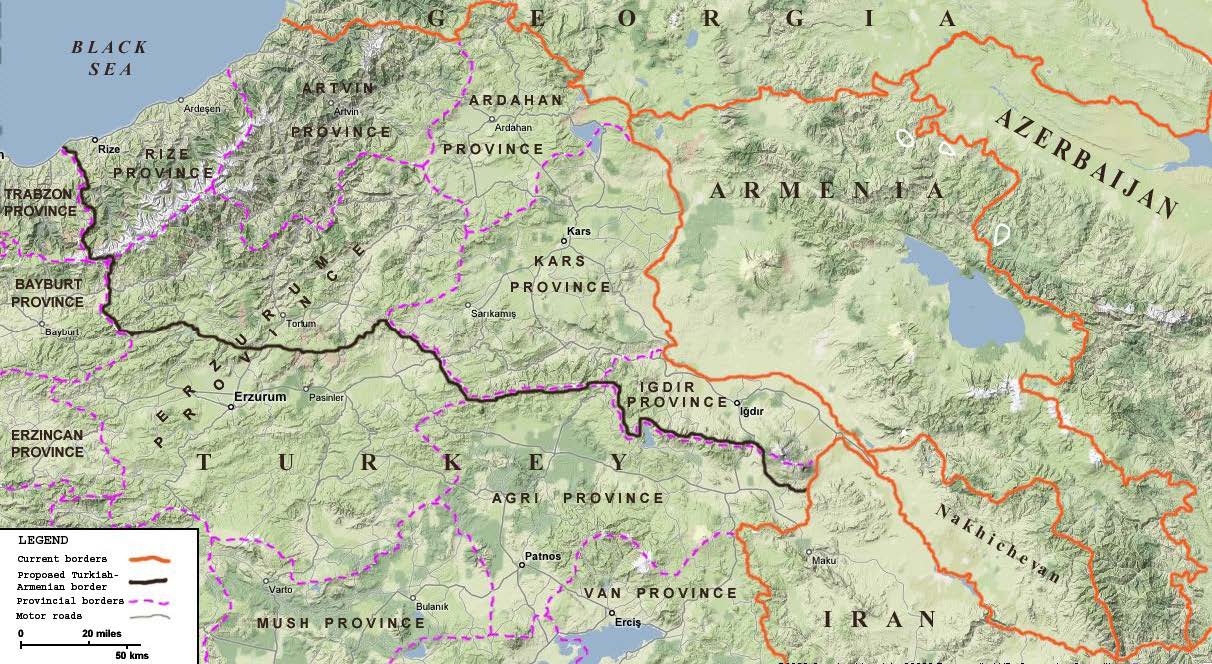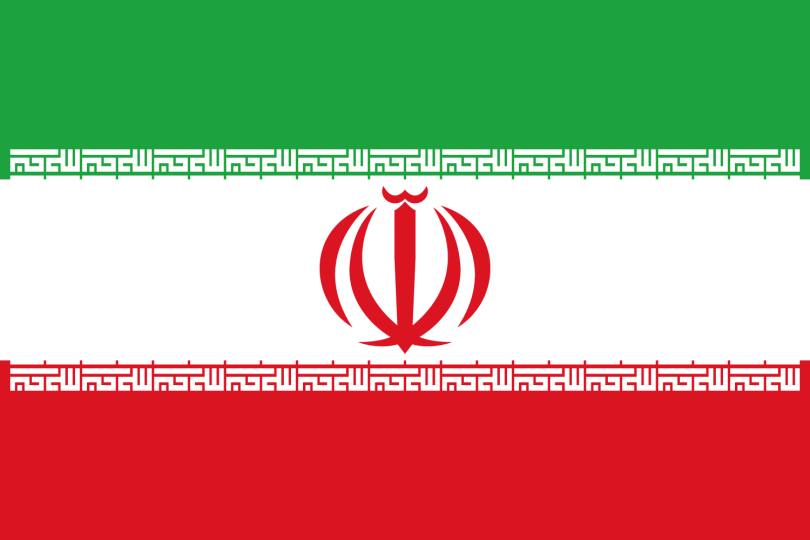David Davidian*, Yerevan, Armenia December 2018
Abstract: Iran exists in a somewhat precarious political and economic situation, with international pressure on its domestic and foreign policies, and centrifugal forces acting on its ethnic constituents. This unique set of constraints is particularly evident regarding Iran’s non-recognition of the Turkish genocide of the Armenians. While individual Iranians, academics and historians, may mention the Turkish genocide of Armenians within its historical content and noting that Turkish forces violated Iranian borders to exterminate Armenians and Assyrians during WWI, no official statement of recognition has ever been made in the name of any Iranian government.
Iran has concluded that its relations with Turkey, deference to its large Azerbaijani-speaking minority, and its relationship with Baku greatly outweighs even a passing mention of this genocide.
The implications for Iran in a Turkish land-reparation settlement with Armenia, as seen on the accompanying map, would economically benefit Iran by providing it a direct northern trade route to the Black Sea. Iran’s northwestern regions would enjoy the buffering and balancing of regional centripetal ethnic forces by the dynamic of an invigorated Armenia resulting from full genocide recognition and reparations.
Background: Armenia, Iran (Persia), and their peoples have lived side by side for millennia, with the latter ruling Armenian provinces for centuries. Through conflict and treaties with Russia and Turkey, the current northwestern Iranian border was established by the early 19th century.
However, for centuries Iran was the target of imperial influence between British and Russian empires. This rivalry was re-branded between Soviet and western influence until the Islamic revolution of 1979. After the 9/11 events and resulting US military actions, Iran found itself in a situation where just outside its borders was unprecedented military carnage. An Iranian response considering nuclear weapons development became an international concern resulting in sanctions to curtail such a goal. The continued disintegration of the Middle East became partially defined as a region-wide Shi’ite-Sunni (and inner-Sunni) rivalry with the poles being Iran and Saudi Arabia, each with their surrogates. This rivalry perpetuated decades of political pressure on Iran, although in a new form. The United States unilaterally withdrew from the P5+1 nuclear agreement with Iran, reinstated sanctions, compounding additional stress on Iran, and strengthening Turkey’s influential trading role with Iran.
Iran did not materially support Azerbaijan in the Armenian-Azerbaijani battle for sovereignty over the region of Nagorno-Karabakh, fought during and just after the disintegration of the Soviet Union, fearing destabilizing Azerbaijani nationalism would infect the provinces of northwestern Iran. Since the 1994 Nagorno-Karabakh ceasefire, Iranian relations have remained cordial with Armenia, but have widened economically with Azerbaijan.
Iran and Turkey have a mutually advantageous economic relationship, so much so that Turkey pays Iran in gold for hydrocarbon resources, defying international sanction against Iran. Turkey is in a struggle for the regional leadership of Sunni Islam in contrast with Iran’s existing Shi’ite leadership and regional influence.
Current Iranian policy: Iran does not recognize the genocide of the Armenians in any form, while never denying it. Any Iranian consideration of this genocide is easily outweighed by its current beneficial economic relationship with Turkey and to a lesser extent, Azerbaijan. A specific deterioration of relations with Turkey would not represent an immediate existential threat to Iran as much as the effects of a regionally-supported disintegration initiative spearheaded by Azerbaijan.
However, Iran might well consider support for the full recognition of the Armenian genocide, not as an epilogue to a change in regional dynamics, but to participate in the sovereign expansion of Armenia to the Black Sea, where
- Iran would become a partner in the regional integration of a new north-south trade route that until now has not been in the interest of Iran will have a friendly opening to the Black Sea.
- A self-sufficient Armenia, significantly reducing the coercive influence of regional powers in advancing their agenda on Armenia and adjacent territories, allows relations to take place between Iran and Armenia based on their mutual interests.
- Political influence on specific ethnic minorities in Iran’s northeast will be significantly reduced with a stronger and self-sufficient Armenia. With trade routes at Iran’s northwestern borders, local economic development will reduce ethnic-centered societal divisions.
- Iran would be among the first Islamic states, following in Turkey’s footsteps, in advancing the full recognition of this genocide and encouraging full reparations.
In summary: Iran has no immediate reason to recognize the Armenian genocide in any form given its precarious international status unless regional dynamics raises its prospects. Prudent policy planning, in support of Turkish recognition and land reparations, will reward Iran, particularly its northwestern regions with friendly access to the Black Sea. The latter is significant given China’s Silk Road initiative. With a stronger and self-sufficient Armenia in development, the dynamics of the Southern Caucasus and the Eastern Armenian Plateau will be positively transformed.
* David Davidian is a US-born citizen residing in Armenia. He is an Adjunct Lecturer at the American University of Armenia.


